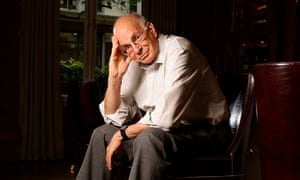CELIBACY and SKIN IN THE GAME (Facebook)
Imagine working for a corporation that produces secret harm to the collective, in hiding cancer-causing risk which kills the thousands but is not (yet) fully visible. You can alert the public, but would automatically lose your job and there is a gamble that the company’s evil scientists would disprove you, causing additional humiliation. You know the history of whisteblowers and realize that, even if you end up vindicated, it may take time for the truth to emerge over the noise created by corporate shills. You have nine children, a sick parent, and as a result of the stand, the children’s future is compromised. College hopes are gone. You feel severely conflicted between the harm to the collective and guilt from harm to your progeny. Thousands are dying from the hidden poisoining by the corporation. You would like to be a hero but it comes at a huge cost.
Society likes saints and moral heroes to be celibate so they do not have family pressures and be forced into dilemmas of needing to compromise their sense of ethics to feed their children. Some martyrs like Socrates had young children (although he was in his seventies), and overcame the dilemma at their expense. Many can’t.
The fact that people with families are vulnerable has been remarkably exploited in history. The Samurai had to leave their families in Edo as hostages, thus guaranteeing to the authorities that they would not take positions against the rulers. The Romans and Huns partook of the practice of trading permanent “visitors”, the children of rulers on both sides who grew up at the courts of the foreign nation in a form of gilded captivity. The Ottomans relied on janissaries who were extracted as babies from Christian families and, having no family (or no contact with their family), were entirely devoted to the Sultan.
Etc.
https://twitter.com/nntaleb/status/664871621354721284
https://twitter.com/nntaleb/status/664484066977292293
https://twitter.com/nntaleb/status/664159993617391618
INEQUALITY AND WEALTH (Facebook)
In the more rural past, wealthy people were not as exposed to other persons of their class. They didn’t have the pressure to keep up with other wealthy persons and compete with them. The wealthy stayed within their region, surrounded with people who depended on them, say a Lord on his property. Except for the occasional season in the cities, their social life was quite vertical.
It is in mercantile urban environments that socializing within social class took place. And, over time, with industrialization the rich started moving to cities or suburbs surrounded with other people of similar –but not very similar –condition. Hence they needed to keep up with each other, racing on a treadmill.
https://twitter.com/nntaleb/status/664086988811862016
https://twitter.com/nntaleb/status/663659172756606976
https://twitter.com/nntaleb/status/663643237459062784
Thanks @Kilkenomics. Only economics conference without uptight and constipated technocrats. https://t.co/TBxSz2izs5
— NassimNicholasTaleb (@nntaleb) November 10, 2015
Fascinating talk on #BlackSwan #antifragile @nntaleb – great to meet you @kilkenomics – great insights @davidmcw pic.twitter.com/LIbzXnGjm6— Shauna O’Boyle (@Shaunaob) November 10, 2015
Jotted down at Kilkenomics why neuroscience, evolutionary theory, behavioral econ, genetics, etc. are full of BS https://t.co/DZhn9cEkh4— NassimNicholasTaleb (@nntaleb) November 9, 2015
Enthralled by @peterfrankopan ‘s book The Silk Roads and by @davidmcw ‘s @kilkenomics pic.twitter.com/ecvGEXGdXd
— NassimNicholasTaleb (@nntaleb) November 9, 2015
Fooled by Researchers https://t.co/lxOaNOWnwP
— NassimNicholasTaleb (@nntaleb) November 12, 2015
Becoming an academic if you like the pursuit of knowledge is like becoming an airport mechanic if you like flying. #uninterestingdetails
— NassimNicholasTaleb (@nntaleb) November 11, 2015
Here is the sheet of simulations where I show to be skeptical of big data, DNA promises, etc. IN PROGRESS. https://t.co/nEfq1EgSpg
— NassimNicholasTaleb (@nntaleb) November 10, 2015
